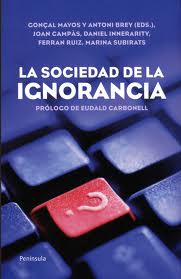A man who comes to a movie theater and ask for help to the usher to find a seat. After getting to the seat, the usher makes a gesture with the hand hoping to receive a tip. The man put his hand in his pocket and, after searching for a few moments, he pulls out […]
The fundamental attribution error, and the organizations
Practically every day we relate with other people. We observe their behaviors, and through the language and interpersonal communication, we listen to the reasons that have been moved to act as they have done. But, if that communication does not happen, we are also able to assume what could be the reasons of which can […]
Migrants cognitive, or learning to un-learn
It is well known the need, and sometimes demand, which is presented to individuals in the Knowledge Society, of learning to learn: the exponential growth of information and technological innovation makes knowledge obsolete more and more rapidly. But, what can be assumed at a social level, the current conception of lifelong learning? This question (among […]
The influence of emotions in reading
Reading is a cognitive process that has received much attention from psychologists and educators. Studies on reading have followed the dominant view in cognitive science, this is, consider the brain as a processor of information. And when we do, we have said much about the way of working of our mind. But it is true […]
Amnesia font (informative)
How many times have we shared information with someone, without being able to determine exactly where we’ve obtained this information (“I read somewhere”)? And how many times that same information has proved to be true only in a partial way?, does or has corresponded only in a limited way with the information from the original […]
The spiral of knowledge
One of the recurrent ideas within the model of the Information Society is the following: as members of complex societies, our well-being depends on potentially our ability to transform information into knowledge. But, how do you convert information into knowledge? In this post, I’m going to comment on an interesting model, proposed by the psychologist […]
Conflict, power, and knowledge management
The discipline of knowledge management experienced a real boom at the end of the 1990s, coinciding with the analysis of the Information Society. Since then, its basic ideas have been criticised and reformulated, paying special attention to those factors that hamper the dissemination of knowledge in the organizations. In this post, I’m going to talk […]
For a balanced assessment of the information
The evaluation of information is the natural complement to the search of information. The manner in which we conduct such an evaluation can affect the way in which we assimilate, and the availability of it to generate true knowledge. In this post, we will talk about a factor that may affect this evaluation operation: the […]
change in organizations: can only a speech?
Change in organizations is a recurrent theme in the literature on management, especially in time of economic crisis like the one we are experiencing. In this post, we will talk about how managers often take the initiative to carry out a change. As we shall see, emotions are the key to these initiatives, emotions that […]









